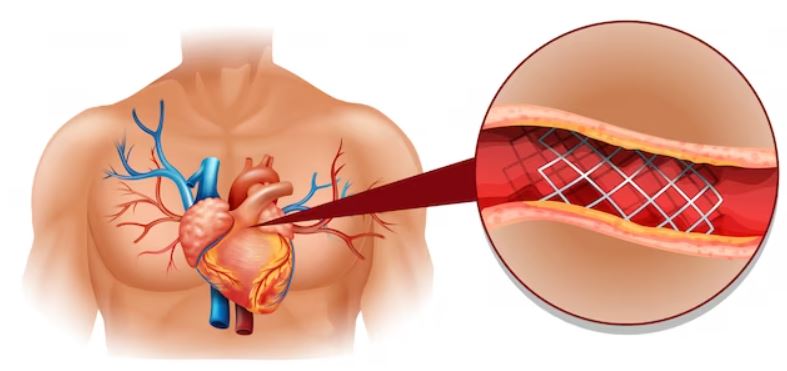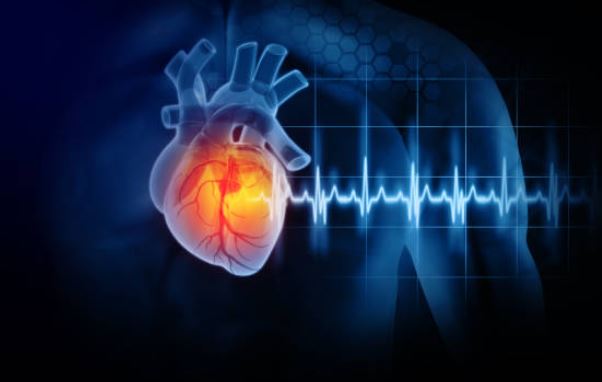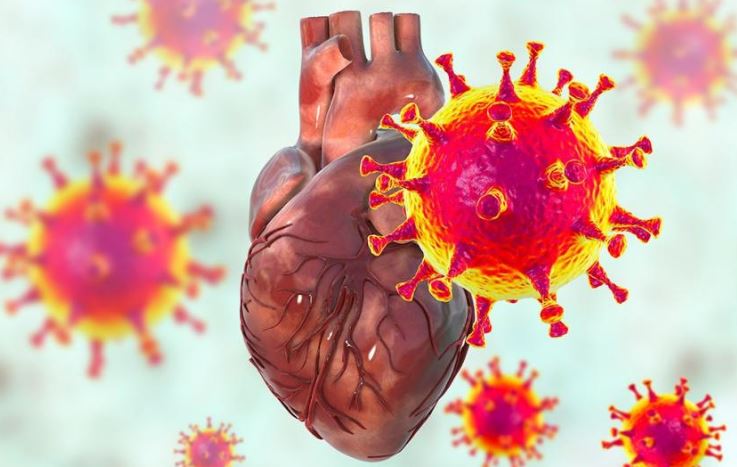The risk of heart disease is increasing among young people!
According to the World Health Organization, Cardiovascular disease (CVD), also known as heart disease, is the number one cause of death worldwide. Every year, millions of people lose their lives due to heart disease, with the number of young people affected increasing in recent years. CVD is a group of disorders affecting the heart and blood vessels, including coronary artery disease, valvular heart disease, cardiomyopathy, arrhythmia, and heart attack. Patients with heart problems often fear not being able to identify symptoms in time, leading to inadequate treatment.
When a person has a heart attack, the following common symptoms are usually experienced:
- Sudden chest pain
- Chest pain spreading to the jaw
- Heavy feeling in the chest
- The sudden increase in heart rate
- Difficulty breathing
- Sudden profuse sweating
- Fatigue, loss of energy, or unconsciousness.

It is important to note that not all heart attacks present these symptoms, and some may experience atypical symptoms such as nausea, vomiting, or indigestion. It is crucial to seek medical attention immediately if any of these symptoms are experienced, as prompt treatment can save lives and prevent long-term damage to the heart.
The Increasing Risk of Heart Disease in Younger Generations:
According to statistics, About 60% of deaths are caused by heart problems, with coronary artery disease being the most prevalent. Individuals with a family history of heart disease are more likely to have a high level of calcium in their arteries. It is important for them to regularly check the calcium levels in their coronary arteries so that they can identify gradually increasing risks and avoid potential dangers.
Heart attacks have always been associated with older individuals. It used to be rare for someone under the age of 40 to suffer a heart attack. However, now, one in every five heart attack patients is under 40 years old. Although this is a concerning fact, suffering a heart attack at the age of 20 or 30 is now common. Between 2000 and 2016, there was a 2% annual increase in the rate of heart attacks among this young age group. It is imperative to raise awareness about the risk factors of this serious problem and take steps toward lifestyle changes.

The Rising Risk of Heart Attacks in Young People Due to Poor Lifestyle Choices:
In today’s era, even young people are at a higher risk of heart attacks. The biggest reason for this is the deteriorating lifestyle and excessive stress. Smoking, alcohol, unhealthy eating habits, and lack of physical activity are also significant reasons for heart attacks. Many young people consume supplements in large numbers to build their bodies, which can prove to be extremely dangerous for the heart. This increases the risk of heart attacks and other cardiovascular diseases. Excessive exercise and dancing can also increase pressure on the heart, which can be a cause of heart attacks.

A heart attack occurs when the flow of blood in the coronary arteries is blocked. One of the main causes of this obstruction is cholesterol. Today, poor diet and deteriorating lifestyles are among the risk factors for heart attacks, which young people are leading.
Understanding the Risk Factors for Heart Attacks in Young Adults:
The Cardiologist explains that young adults who experience a heart attack are likelier to be overweight or have coexisting conditions such as diabetes or high blood pressure. If you have diabetes, your risk of dying from heart disease is 2 to 4 times higher than those without diabetes. The problem arises when your blood sugar is not adequately controlled to maintain it within a healthy range. High blood sugar damages your blood vessels, increasing the likelihood of fat accumulation and atherosclerosis in your arteries.
Young women can experience spontaneous coronary artery dissection or SCAD, which can sometimes present as a heart attack. Therefore, it is essential to adopt a preventive lifestyle from a young age and manage modifiable risk factors.
COVID-19 and Heart Health: Understanding the Connection and Mitigating the Risks:
People who have pre-existing high-risk conditions and weak immune systems are more susceptible to diseases. If you have recently been affected by the COVID-19 pandemic, your risk of heart-related complications increases significantly. Consuming a nutritious diet, engaging in regular physical activity, and taking prescribed medication for any medical condition can strengthen your immune system and increase awareness related to disease prevention is necessary.
Cardiovascular or blood vessel-related conditions are included in the conditions that can be affected by COVID-19. Heart disease is multifactorial, meaning there are many causes and ways in which heart disease can occur. Family history, comorbidities such as hypertension and diabetes, or an unhealthy lifestyle, including smoking and alcohol consumption, are potential causes of heart disease. Although people are now aware of this, people are still not paying attention to it, especially young people.

Some specific measures for better heart health are as follows:
- Engage in regular physical activity for approximately 30 minutes per day to help with weight loss, lowering blood sugar levels, and increasing insulin sensitivity.
- Eat a healthy diet rich in fiber, including fruits, vegetables, whole grains, beans, and nuts, and avoid processed and packaged foods.
- Avoid smoking and limit alcohol consumption, as they are major risk factors for heart disease.
- Have your blood sugar levels checked regularly, especially if you have a family history of the condition. This will help you take preventive action as soon as possible.
- For more information about heart health, be sure to contact your doctor and follow their prescribed medications and strategies.
Read Also: Long COVID Linked to Higher Risk of Serious Illness and Premature Death
To know more in detail: Click here









